January 21 stands as one of history’s most eventful days, witnessing the rise and fall of empires, groundbreaking discoveries, and moments that shaped our modern world across centuries of human achievement.
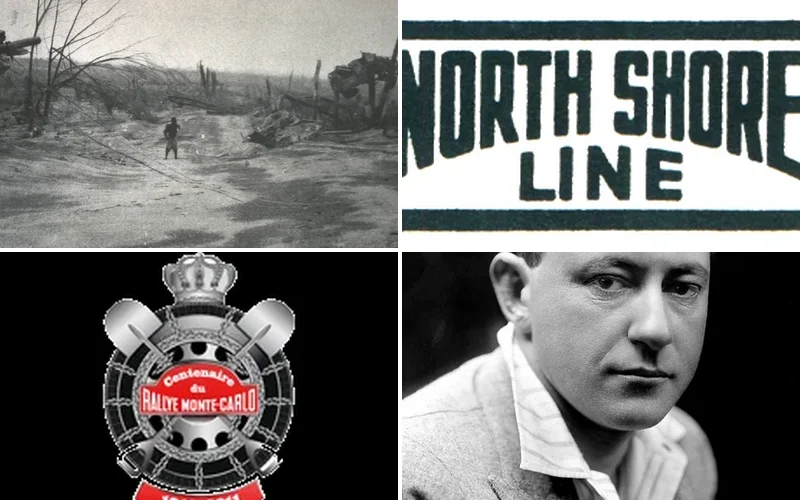
Politics and Government Events on January 21
1919 – Irish Parliament Declares Independence
Revolutionary Irish leaders established their own parliament and boldly declared the independence of the Irish Republic. This historic moment sparked one of the first major engagements of the Irish War of Independence.
The declaration represented years of growing nationalist sentiment finally reaching its breaking point. Irish patriots challenged British rule directly, setting the stage for decades of conflict and eventual independence.
1925 – Albania Declares Itself a Republic
Albania officially transformed its government structure by declaring itself a republic on this significant date. The declaration marked the end of monarchical rule and the beginning of republican governance.
This political transformation reflected broader European trends toward democratic institutions. The new republic faced immediate challenges in establishing stable governance and international recognition.
1950 – Alger Hiss Convicted of Perjury
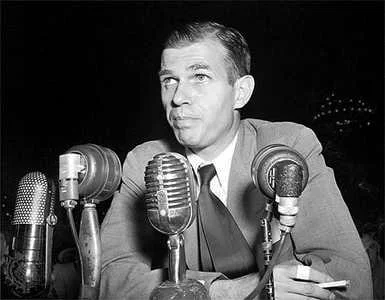
American lawyer and government official Alger Hiss received a conviction for perjury in one of the era’s most controversial legal cases. The conviction sent shockwaves through American political circles and intensified Cold War tensions.
Hiss’s case became a defining moment in American anti-communist sentiment. The conviction boosted the career of prosecutor Richard Nixon and shaped public discourse about communist infiltration.
1997 – Newt Gingrich Reprimanded by House
The U.S. House of Representatives voted 395-28 to reprimand Speaker Newt Gingrich for ethics violations. This historic vote made Gingrich the first Speaker of the House to face such disciplinary action.
The reprimand reflected growing concerns about political ethics and accountability in Congress. Gingrich’s punishment demonstrated that even the highest-ranking legislative officials faced consequences for ethical breaches.
2000 – Ecuador Presidential Crisis
Indigenous organizations seized the Ecuadorian Congress, leading to President Jamil Mahuad’s dramatic removal from office. Colonel Lucio Gutiérrez, Carlos Solorzano, and Antonio Vargas orchestrated the successful coup.
The military intervention highlighted Ecuador’s political instability and indigenous rights movements. Vice-President Gustavo Noboa ultimately assumed power after General Carlos Mendoza’s brief tenure and subsequent resignation.
2017 – Global Women’s March

Over 400 American cities and 160+ countries worldwide participated in massive women’s marches on Donald Trump’s first full day as President. The coordinated demonstrations represented one of the largest single-day protests in American history.
The marches demonstrated unprecedented global solidarity for women’s rights and social justice. Millions of participants voiced opposition to policies they perceived as threatening fundamental freedoms.
Military and Naval History on January 21
1941 – Iron Guard Rebellion in Romania
The murder of a German officer in Bucharest sparked a violent rebellion and pogrom by Iron Guard members. The fascist organization’s uprising resulted in the deaths of 125 Jewish civilians.
This tragic event demonstrated the deadly intersection of fascist ideology and anti-Semitic violence. The rebellion highlighted Romania’s precarious position between Nazi Germany and growing internal extremist movements.
1943 – Operation Animals SOE Sabotage
British Special Operations Executive saboteurs successfully destroyed the strategic railway bridge over the Asopos River. Greek People’s Liberation Army guerrillas simultaneously ambushed and destroyed a German convoy at the Battle of Sarantaporos.
These coordinated attacks disrupted German supply lines and communications across occupied Greece. The successful operations demonstrated effective collaboration between British intelligence and Greek resistance forces.
1968 – Battle of Khe Sanh Begins
One of the Vietnam War’s most publicized and controversial battles commenced with intense fighting around the strategic Marine base. The battle would continue for months, capturing international attention and dividing American public opinion.
Khe Sanh became a symbol of American military determination and the war’s escalating costs. The prolonged siege tested military strategy and strengthened anti-war sentiment across the United States.
1968 – B-52 Nuclear Accident at Thule
A B-52 bomber crashed near Thule Air Base in Greenland, contaminating the surrounding area when its nuclear payload ruptured. One of the four nuclear bombs remained unaccounted for after extensive cleanup operations.
The accident raised serious questions about nuclear weapons safety and transport procedures. International concerns about nuclear contamination in the Arctic led to diplomatic tensions with Denmark.
Science and Discovery Milestones on January 21
1954 – USS Nautilus Nuclear Submarine Launch
The world’s first nuclear-powered submarine, USS Nautilus, launched from Groton, Connecticut with First Lady Mamie Eisenhower presiding over the ceremony. This revolutionary vessel represented a quantum leap in naval technology and strategic capabilities.
The Nautilus transformed submarine warfare by eliminating the need for surface air and extending underwater endurance indefinitely. Its nuclear propulsion system pioneered technologies that would reshape both military and civilian nuclear applications.
1960 – Miss Sam Space Mission
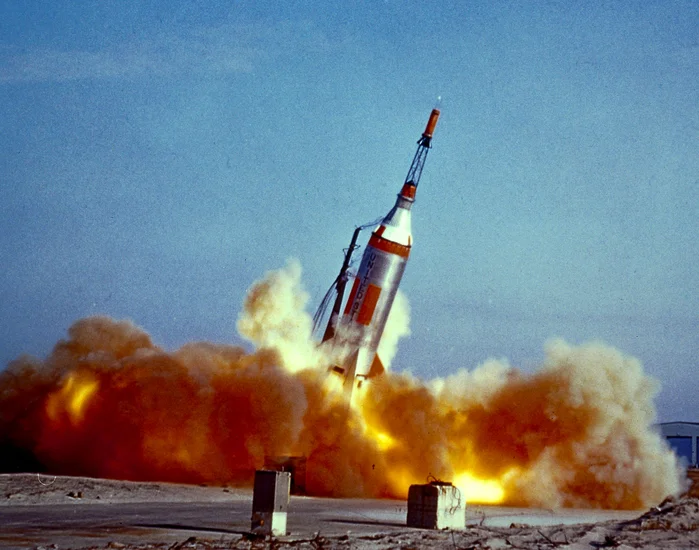
Little Joe 1B Mercury spacecraft lifted off from Wallops Island, Virginia carrying Miss Sam, a female rhesus monkey. The mission tested spacecraft systems and life support capabilities crucial for future human space flights.
Miss Sam’s successful flight provided vital data about biological survival in space conditions. The mission contributed directly to NASA’s confidence in launching human astronauts into space.
2004 – Mars Rover Spirit Communication Loss
NASA’s Mars Exploration Rover Spirit (MER-A) ceased communication with mission control due to flash memory management problems. Engineers successfully diagnosed and fixed the critical issue remotely from Earth on February 6.
The communication breakdown threatened one of Mars exploration’s most ambitious missions. NASA’s successful remote repair demonstrated remarkable engineering capabilities and mission control expertise.
1951 – Mount Lamington Catastrophic Eruption

The catastrophic eruption of Mount Lamington in Papua New Guinea claimed 2,942 lives in one of the Pacific region’s deadliest volcanic disasters. The massive eruption devastated surrounding communities and reshaped local geography.
The disaster highlighted the deadly power of volcanic activity in the Pacific Ring of Fire. Scientific study of the eruption advanced understanding of pyroclastic flows and volcanic hazard assessment.
Cultural and Arts Events on January 21
1908 – Sullivan Ordinance Vetoed in New York
New York City passed the Sullivan Ordinance making it illegal for women to smoke in public, only to have Mayor George McClellan veto the controversial measure. The ordinance reflected changing social attitudes toward women’s public behavior and personal freedoms.
The veto represented a victory for women’s rights advocates and personal liberty supporters. The controversy illustrated growing tensions between traditional social values and emerging modern attitudes.
1976 – Concorde Commercial Service Begins
The supersonic Concorde passenger aircraft began commercial service with inaugural flights on the London-Bahrain and Paris-Rio routes. The revolutionary aircraft cut transatlantic flight times in half and represented the pinnacle of aviation technology.
Concorde’s maiden commercial flights marked a new era in luxury air travel. The aircraft became a symbol of technological achievement and exclusive transportation for the world’s elite.
1985 – DeLorean Production Begins

Production of the iconic DeLorean sports car began in Dunmurry, Northern Ireland, creating one of automotive history’s most distinctive vehicles. The stainless steel car with gull-wing doors would later achieve fame in the “Back to the Future” film series.
The DeLorean represented ambitious automotive innovation and entrepreneurial vision. Despite production challenges, the car became a cultural icon that transcended its brief manufacturing run.
Religious and Social Events on January 21
1915 – Kiwanis International Founded
Kiwanis International was founded in Detroit, establishing one of the world’s major service organizations dedicated to community improvement and children’s welfare. The organization’s founding reflected growing American interest in civic engagement and social responsibility.
Kiwanis quickly expanded beyond Detroit to become a global network of service clubs. The organization’s focus on “serving the children of the world” established lasting traditions of community service and philanthropy.
1942 – Jewish Resistance Organization Established
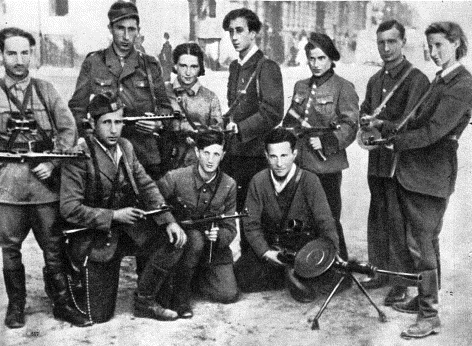
The Jewish resistance organization Fareynikte Partizaner Organizatsye was established in the Vilna Ghetto, creating organized opposition to Nazi persecution. The group’s formation represented courageous defiance against overwhelming oppression.
The organization coordinated resistance activities and provided hope for ghetto residents facing systematic extermination. Their efforts contributed to broader Jewish resistance movements across Nazi-occupied Europe.
2023 – Monterey Park Mass Shooting
Huu Can Tran, 72, opened fire in a dance studio in Monterey Park, California, killing eleven people and injuring nine others before committing suicide. The tragedy became the worst mass shooting in Los Angeles County since the 2008 Covina massacre.
The shooting devastated the tight-knit Asian American community and renewed national debates about gun violence. The incident highlighted the ongoing epidemic of mass shootings in American communities.
Business and Economic Events on January 21
1932 – Finland-Soviet Union Non-Aggression Treaty
Finland and the Soviet Union signed a crucial non-aggression treaty that temporarily stabilized relations between the neighboring nations. The agreement provided Finland with essential security guarantees during a period of European instability.
The treaty represented diplomatic success for Finland’s efforts to maintain independence. However, the agreement would later prove fragile when World War II dramatically altered the geopolitical landscape.
1999 – Massive Drug Bust by Coast Guard
The United States Coast Guard intercepted a ship carrying over 4,300 kilograms of cocaine in one of the largest drug busts in American history. The operation dealt a significant blow to international drug trafficking networks.
The seizure demonstrated the Coast Guard’s effectiveness in maritime law enforcement. The bust highlighted the ongoing challenges of combating international drug smuggling operations.
2005 – Belize Tax Riots
Unrest over the Belizean government’s new tax policies erupted into violent riots in the capital city of Belmopan. The demonstrations reflected widespread public opposition to increased taxation and economic hardship.
The riots forced government officials to reconsider their fiscal policies. The unrest demonstrated the volatile relationship between taxation policies and public acceptance in developing nations.
Transportation and Infrastructure on January 21
1911 – First Monte Carlo Rally

The inaugural Monte Carlo Rally took place, establishing one of motorsport’s most prestigious and challenging events. The rally attracted adventurous drivers from across Europe to navigate treacherous mountain roads to Monaco.
The event pioneered the concept of long-distance automotive competition and endurance racing. The Monte Carlo Rally became a proving ground for automotive technology and driver skill.
1963 – Chicago North Shore Railroad Ends
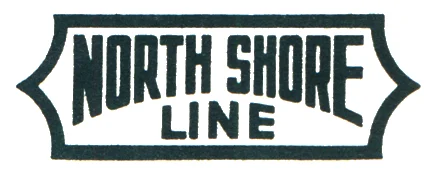
The Chicago North Shore and Milwaukee Railroad ended operations after decades of serving the region’s transportation needs. The closure reflected changing transportation patterns and the decline of interurban rail systems.
The railroad’s demise marked the end of an era in American regional transportation. The closure highlighted the growing dominance of automobile travel over rail transportation.
1971 – Emley Moor Transmitting Station Begins

The current Emley Moor transmitting station, Britain’s tallest free-standing structure, began transmitting UHF broadcasts. The massive tower provided television and radio signals across Yorkshire and surrounding regions.
The transmitting station represented significant advancement in British broadcasting infrastructure. The tower’s construction demonstrated engineering capabilities in telecommunications and broadcasting technology.
Sports and Recreation on January 21
1931 – Sir Isaac Isaacs Sworn In
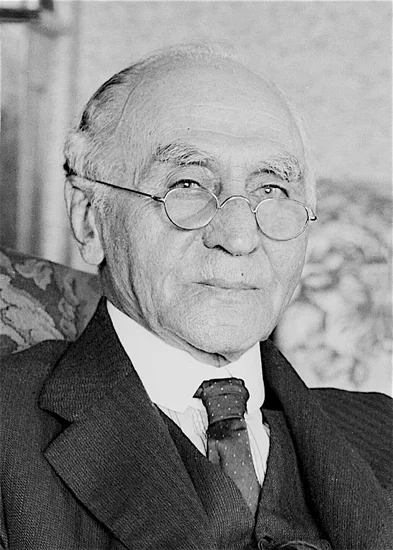
Sir Isaac Isaacs was sworn in as the first Australian-born Governor-General of Australia, marking a historic milestone in the nation’s political development. His appointment represented growing Australian independence from British colonial administration.
Isaacs’s appointment symbolized Australia’s constitutional evolution toward greater self-governance. The historic ceremony demonstrated Australia’s increasing confidence in its own political leadership.
1980 – Iran Air Flight 291 Crashes

Iran Air Flight 291 crashed in the Alborz Mountains while approaching Mehrabad International Airport in Tehran, killing all 128 people aboard. The disaster marked one of Iran’s deadliest aviation accidents.
The crash highlighted aviation safety challenges in mountainous terrain and adverse weather conditions. The tragedy prompted improvements in airport approach procedures and aircraft safety systems.
1985 – Galaxy Airlines Flight 203 Crashes

Galaxy Airlines Flight 203 crashed near Reno-Tahoe International Airport, killing 70 people in one of Nevada’s worst aviation disasters. The crash devastated families and prompted extensive safety investigations.
The disaster led to significant improvements in airline safety protocols and aircraft maintenance standards. The tragedy demonstrated the ongoing challenges of ensuring aviation safety in challenging weather conditions.
Notable Births on January 21
1905 – Christian Dior Born
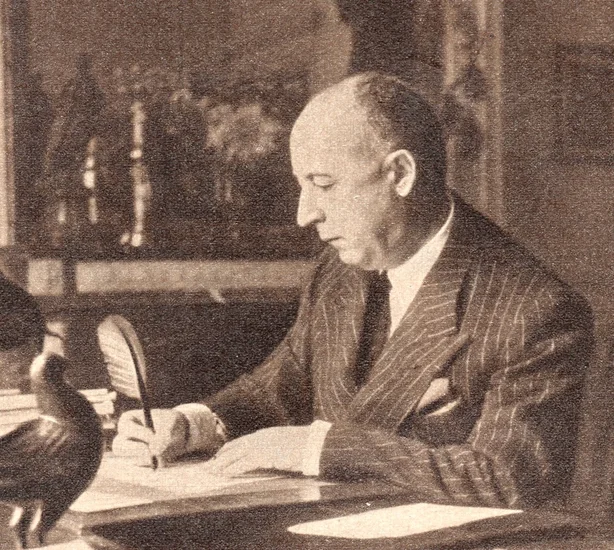
Christian Dior entered the world in Granville, France, destined to revolutionize fashion and establish one of the world’s most prestigious luxury brands. His early life showed little indication of his future impact on international fashion.
Dior would later create the “New Look” that redefined women’s fashion after World War II. His innovative designs and business acumen established Christian Dior S.A. as a global luxury empire.
1924 – Benny Hill Born
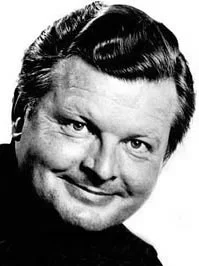
Benny Hill was born in Southampton, England, beginning a life that would bring laughter to millions through his innovative comedy shows. His childhood experiences shaped his unique comedic sensibilities and performance style.
Hill’s television programs became internationally beloved for their slapstick humor and memorable characters. His comedy transcended cultural boundaries and influenced generations of performers worldwide.
1941 – Plácido Domingo Born

Plácido Domingo was born in Madrid, Spain, beginning a legendary career that would establish him as one of opera’s greatest tenors. His musical talents emerged early and shaped his extraordinary artistic development.
Domingo’s powerful voice and dramatic interpretations revolutionized opera performance and brought classical music to broader audiences. His artistic achievements earned him recognition as one of the Three Tenors.
1953 – Paul Allen Born

Paul Allen was born in Seattle, Washington, destined to co-found Microsoft and become one of technology’s most influential pioneers. His childhood fascination with computers and programming set the foundation for revolutionary achievements.
Allen’s partnership with Bill Gates created the personal computer revolution and transformed global technology. His philanthropic efforts and business investments continued to shape innovation throughout his lifetime.
1969 – Karina Lombard Born

Karina Lombard was born in Tahiti, French Polynesia, beginning a successful career as an actress and singer. Her multicultural background and artistic talents opened doors to international entertainment opportunities.
Lombard’s performances in film and television showcased her versatility and dramatic range. Her work highlighted important social issues and brought diverse perspectives to mainstream entertainment.
1976 – Emma Bunton Born

Emma Bunton was born in Barnet, London, destined to become “Baby Spice” and help create one of pop music’s most successful girl groups. Her early interest in performing arts led to her iconic role in the Spice Girls.
Bunton’s contribution to the Spice Girls phenomenon influenced popular culture and inspired countless young performers. Her solo career and television work continued to showcase her entertainment talents.
Notable Deaths on January 21
1924 – Vladimir Lenin Dies

Vladimir Lenin, the Russian revolutionary leader and founder of the Soviet Union, died at age 53 after suffering multiple strokes. His death marked the end of an era and triggered a succession struggle that would reshape the Soviet Union.
Lenin’s revolutionary theories and political leadership fundamentally altered world history. His death created a power vacuum that Joseph Stalin would eventually fill, dramatically changing the Soviet Union’s trajectory.
1950 – George Orwell Dies
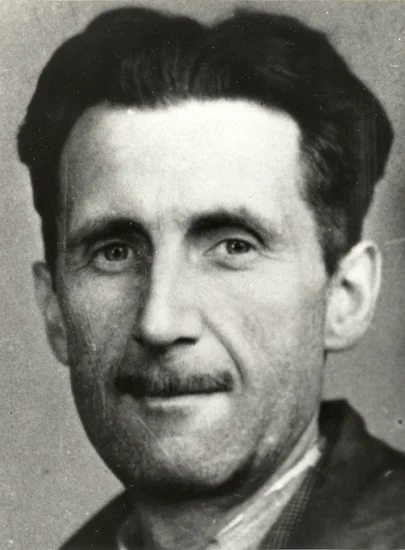
George Orwell, the British novelist and essayist, died at age 46 from tuberculosis, just months after publishing “Nineteen Eighty-Four.” His death silenced one of the 20th century’s most influential literary voices.
Orwell’s novels “Animal Farm” and “1984” became defining works of political literature. His warnings about totalitarianism and government surveillance remain remarkably relevant in contemporary society.
1959 – Cecil B. DeMille Dies
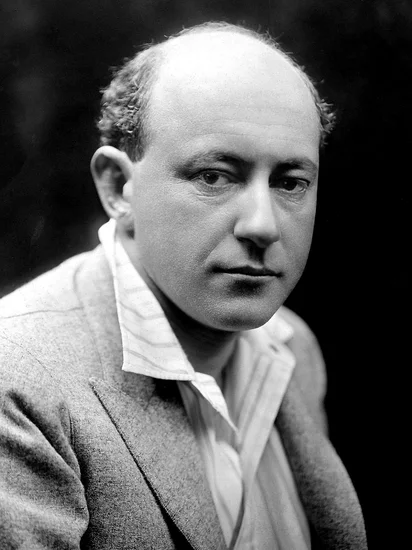
Cecil B. DeMille, the legendary American film director and producer, died at age 77 after creating some of Hollywood’s most spectacular epic films. His death marked the end of cinema’s pioneering era.
DeMille’s biblical epics and historical dramas established the template for blockbuster filmmaking. His innovative techniques and grand storytelling influenced generations of directors and shaped Hollywood’s golden age.
2002 – Peggy Lee Dies
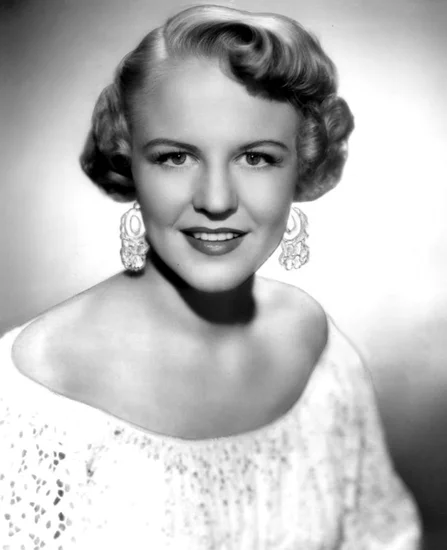
Peggy Lee, the American jazz and popular music singer, died at age 81 after a career spanning over six decades. Her sophisticated vocal style and songwriting talents made her one of America’s most beloved entertainers.
Lee’s performances of songs like “Fever” and “Is That All There Is?” became timeless classics. Her influence on jazz and popular music continues to inspire singers and musicians worldwide.
2020 – Terry Jones Dies
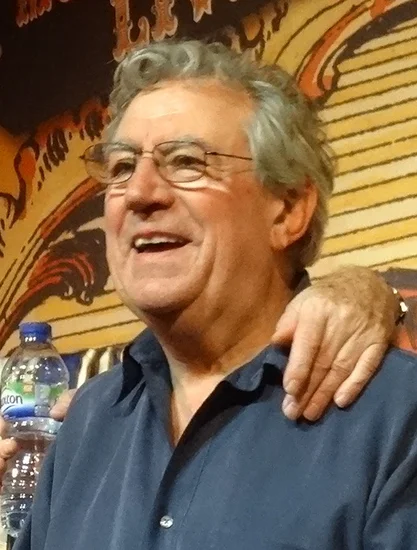
Terry Jones, the Welsh actor, director, and member of Monty Python’s Flying Circus, died at age 77 from dementia. His death marked the loss of one of British comedy’s most creative and influential figures.
Jones’s contributions to Monty Python revolutionized comedy and influenced countless comedians worldwide. His directing work and historical scholarship demonstrated his versatility beyond performance.
Holidays and Observances on January 21
Errol Barrow Day (Barbados)
Barbados celebrates Errol Barrow Day in honor of the nation’s first Prime Minister and founding father. The holiday commemorates Barrow’s leadership in achieving independence and establishing democratic institutions.
The observance reflects Barbadian pride in their political heritage and democratic achievements. Citizens participate in ceremonies and educational programs highlighting Barrow’s contributions to national development.
Flag Day (Quebec)
Quebec observes Flag Day to commemorate the adoption of the Quebec flag in 1948 and its first display over the National Assembly. The holiday celebrates Quebec’s distinct cultural identity and provincial autonomy.
The observance reinforces Quebec’s unique position within Canada and its French-speaking heritage. Citizens display the fleur-de-lis flag and participate in cultural celebrations throughout the province.
National Hugging Day (United States)

Americans celebrate National Hugging Day to promote the emotional and physical benefits of human touch and affection. The holiday encourages people to embrace family members, friends, and even strangers to spread warmth and connection.
The observance highlights research showing that hugging reduces stress and promotes emotional well-being. People participate by giving hugs, sharing embraces, and spreading positive human contact throughout their communities.
